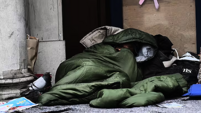Direct provision 'inappropriate for women and girls who have been sexually exploited'

The report produced in partnership by the Sexual Exploitation Research Project (SERP) at UCD and Ruhama, which supports survivors of the sex trade. Stock picture
Direct provision is “wholly inappropriate” for women who have been sexually exploited, according to a new report on women exiting the sex industry.
The report, Pathways to Exit: A Study of Women’s Journeys Out of Prostitution and the Response to their Complex Support Needs, was produced in partnership between the Sexual Exploitation Research Project (SERP) at UCD and Ruhama, which supports survivors of the sex trade.













